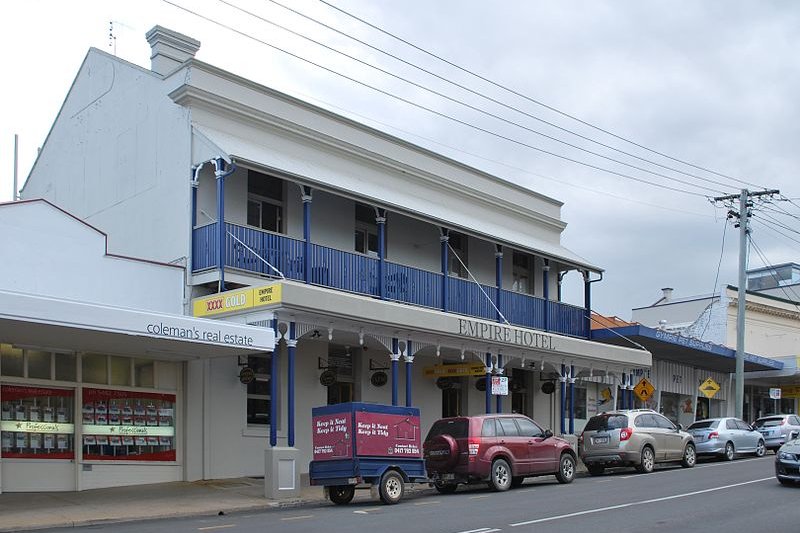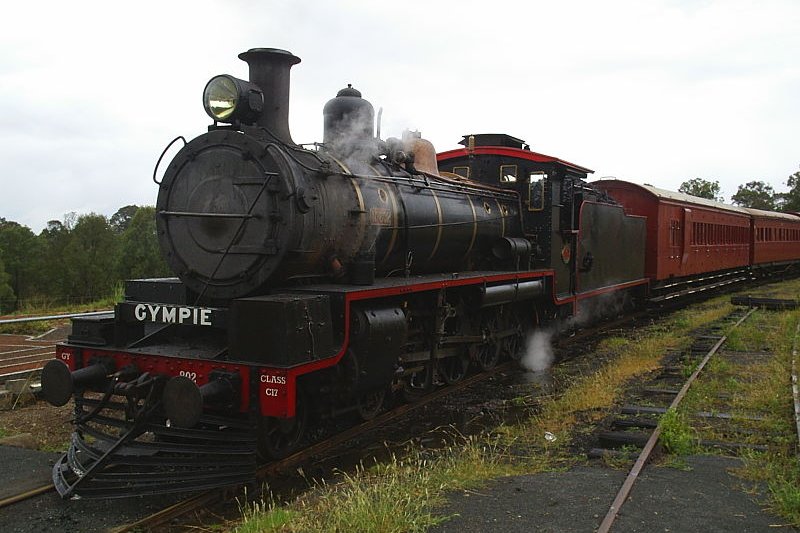 Gympie, Queensland, with view of Empire Hotel
Gympie, Queensland, with view of Empire HotelSource: https://commons.wikimedia.org/wiki/File:Gympie_Empire_Hotel.JPG
Author: Mattinbgn

Gympie is a small town on the southeastern part of Queensland, Australia. Situated on the Mary River, it has a population of around 11,000 people (2012 estimate).
The name Gympie comes from the Kabi tribe of indigenous people. It is said to have been derived from the word gimpi-gimpi, meaning stinging tree, in reference to Dendrocnide moroides. Gympie was settled in the mid 19th century for the pastoral industry. It grew rapidly following the discovery of gold by James Nash in 1867, a blessing that saved Queensland from a severe economic depression. The discovery of gold is still celebrated today in the Gympie Gold Rush Festival. The settlement was given the name Nashville that year, but was renamed Gympie in 1868.
Visiting Gympie
Gympie is about 160 km north of Brisbane. You can reach it by road on National Highway A1 (Bruce Highway). The Valley Rattler, a steam locomotive of the Queensland Railways on its way to Gympie
The Valley Rattler, a steam locomotive of the Queensland Railways on its way to GympieSource: https://commons.wikimedia.org/wiki/File:MVHRc17802.JPG
Author: Qld matt

 Places of Interest in Gympie
Places of Interest in Gympie
- Gympie Gold Mining and Historical Museum
Museum showcasing the history of mining in Gympie. - Tin Can Bay
Bay where you can hand-feed the Indo-Pacific humpback dolphins. - Valley Rattler
Steam train that makes scenic tours of the Mary Valley. - WoodWorks Museum
Museum showcasing the history of the timber industry in Gympie.
Back to Discover Australia
 Latest updates on Penang Travel Tips
Latest updates on Penang Travel Tips

Copyright © 2003-2025 Timothy Tye. All Rights Reserved.

 Go Back
Go Back